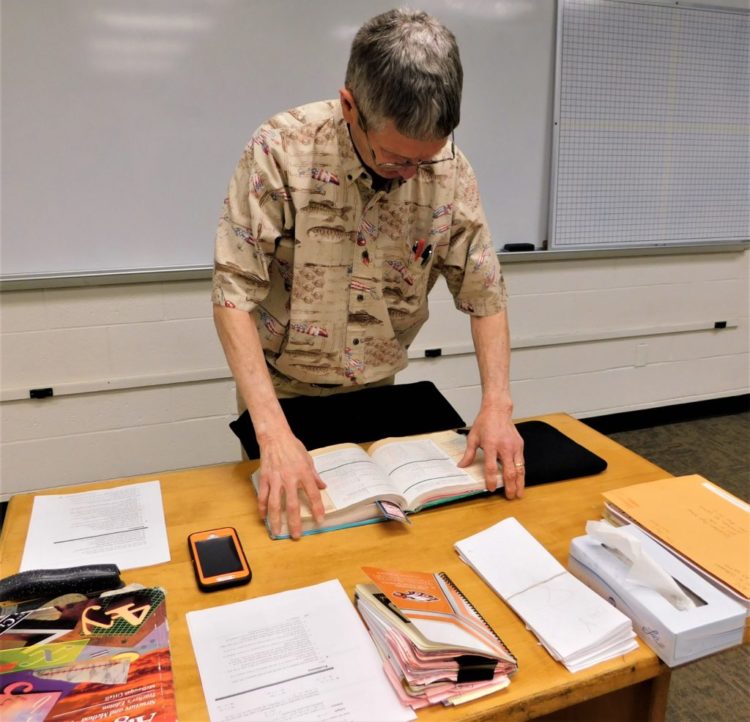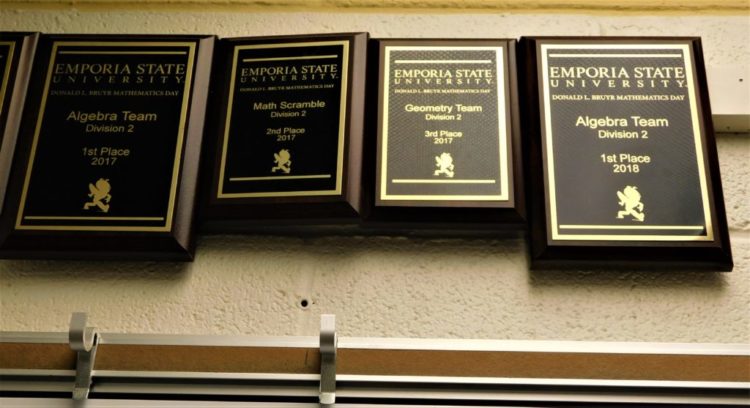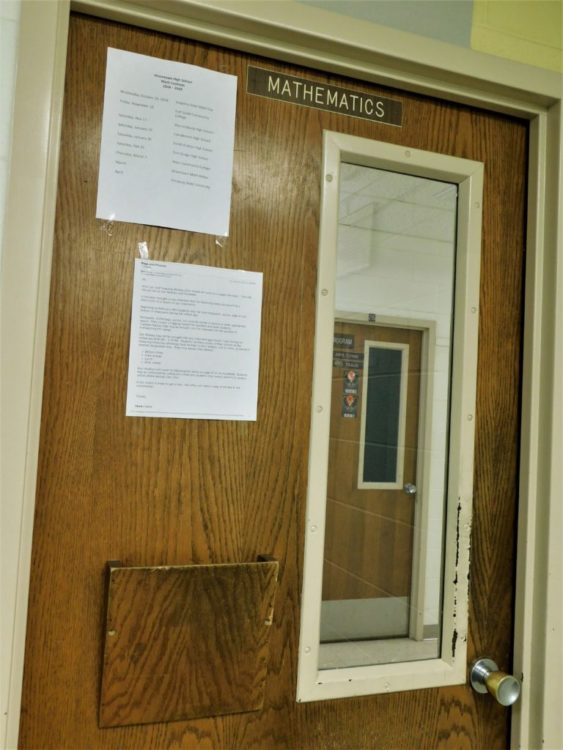|
WEEKLY CHAMBER COFFEE REMINDER
|
|
|
WEEKLY CHAMBER COFFEE REMINDER
|
|
Fort Scott Talking Tigers competed at Caney Valley Tuesday March 26. Fort Scott took 1st place in Sweeps!
* indicates state qualifiers
PROSE:
5th – Dalton Womeldorff
POETRY:
6th- Brooklyn Miller
5th – Jonie Antonio
*2nd – Madi Toth *
*1st – Elizabeth Ngatia *
HUMOROUS INTERP:
3rd place – Jade Russell
DRAMATIC INTERP:
*2nd – Hunter Adamson*
DUO:
3rd – Karina Kantilal and Audra McFarland
*2nd – Zoe Self and Hunter Adamson *
ORIGINAL ORATORY:
3rd – Shekhar Gugnani
*2nd – Zoe Self*
* 1st – Elizabeth Ngatia*
DOMESTIC EXTEMP
4th – Dalton Womeldorff
3rd – Mark Adams
FOREIGN EXTEMP
6th – Jade Russell
3rd – Shekhar Gugnani
*1st – Zoe Self *
IMPROMPTU
6th – Jade Ivy Bailey
*2nd – Mark Adams *
*1st – Dalton Womeldorff *
Submitted by Angella Curran.
Monday, March 25, was the national qualifier tournament for student congress. Fort Scott took 10 students in House and 2 in Senate. Eight of the ten moved on to the finals house!
Here are the results: in consolation house Ashton Nave placed 2nd.
In finals house Jonie Antonio placed 8th.
In Senate Jakob Slinkard placed 8th.
AND YOUR NATIONAL QUALIFIERS FOR 2019 NSDA NATIONALS IN TEXAS ARE
MADI TOTH 1st place in Senate and REBEKAH SWEYKO 1st place in house! Congratulations team on an outstanding day!
Submitted by Angella Curran
Agenda
Bourbon County Commission Room
1st Floor, County Courthouse
210 S. National Avenue
Fort Scott, KS 66701
Date: March 28th, 2019
1st District-Lynne Oharah Minutes: Approved: _______________
2nd District-Jeff Fischer Corrected: _______________
3rd District-Nick Ruhl Adjourned at: _______________
County Clerk-Kendell Mason
9:30-Executive Session-Consultation with an attorney for the body or agency which would be deemed privileged in the attorney-client relationship
Julie Lorenz was confirmed by the Senate today as Secretary of the Kansas Department of Transportation (KDOT). Lorenz was appointed by Gov. Laura Kelly in January 2019. In her capacity as Secretary of KDOT, Lorenz also serves as the Director of the Kansas Turnpike Authority.
“Secretary Lorenz is an expert in the area of transportation and understands just how critical it is to the future of our economy and our state,” Gov. Kelly said. “She has been a state and national leader in transportation for two decades and Kansas is lucky to have her leading KDOT.”
“I am honored to serve as the Secretary of Transportation,” Lorenz said. “I look forward to working collaboratively with communities and constituencies across our state to develop a supportable vision for transportation, complete T-WORKS and craft the next transportation plan for long-term, sustainable success for all Kansans.”
This is Lorenz’s second tour of duty for KDOT, serving as the Director of Public Affairs and Special Assistant from 2003 to 2011. During that time, she led the development of several efforts at the agency, including the development and eventual legislative passage of the $8.2 billion, 10-year T-WORKS funding program in spring 2010.
Spring Hours of Operation for Fort Scott National Historic Site
Fort Scott KS – As the days grow longer, so do the hours of operation at Fort Scott National Historic Site. Beginning Monday, April 1, the park visitor center, Park store, and historic structures will be open daily from 8:00 am–5:00 pm. The park grounds, walkways, and parking lot are open from ½ hour before sunrise until ½ hour after sunset daily.
Park Rangers are on hand and happy to help you learn more about the area and plan your visit. For more information about Fort Scott National Historic Site programs, upcoming events such as the annual spring Civil War Encampment (April 27 & 28), Symbols of Sacrifice (May 24 through 27), Candlelight Tour (December 6 & 7), or other activities, please call the park at 620-223-0310, or visit our website at www.nps.gov/fosc.
Fort Scott National Historic Site is a fee-free park that offers a glimpse into the growth of our nation through a short film, interactive audio-visual programs, displays, the museum, and historic objects. A walk through the fort reveals the significant role it played in the opening of the West, as well as, the Civil War and the strife in the State of Kansas that preceded it.
Fiscal responsibility critical to rebuilding Kansas
The following column is by Governor Laura Kelly:
Just two short years ago, the State of Kansas found itself on the brink of financial disaster. Even after depleting state savings and enduring multiple rounds of devastating budget cuts, unsustainable tax policy continued to perpetuate fiscal crisis. We saw schools close and class sizes grow. We saw an overwhelmed child welfare system let children fall through the cracks. And despite promises of immediate prosperity, Kansas routinely ranked among the nation’s worst in multiple economic indicators.
As the budget hole continued to grow, the legislature passed two sales tax increases, swept more than $2 billion from the state highway fund, delayed numerous payments to the state pension system, accumulated historic levels of debt, and raided every critical investment from early childhood education to public safety. But in the end, none of these short-term band aids could stem the bleeding caused by the reckless Brownback tax experiment. In November of 2016, Kansans called for change.
The very next year, the state hit “reset” in a historic act of bipartisanship with the passage of comprehensive tax reform. Our credit score improved within a week. The number of Kansans participating in the labor force increased for the first time since 2014.
We have only just started the rebuilding process. Our recovery is uncertain; our budget is fragile. The State of Kansas cannot afford to make a U-turn now.
Senate Bill 22 – another reckless tax plan – would absolutely dismantle all the progress we’ve made. It would throw our state once again into a self-inflicted budget crisis, diminishing all the investments we’ve worked so hard to rebuild and restore. It would put our future at risk once again in order to give significant tax breaks to entities who need them the least, while continuing to leave working families behind.
I share Kansas lawmakers’ desire to keep the state tax burden as low as possible and that will continue to be a priority. In January, I presented a structurally balanced budget that funded our schools and roads, reduced state debt, left Kansas with the largest ending balance in 20 years and did so all without a tax increase.
I was a math major. This is about basic math. My budget proposal left a healthy, fiscally responsible ending balance. If I had signed Senate Bill 22, the budget that just passed the Senate would fall to more than $600 million in the hole within two years.
That is unacceptable. That is irresponsible.
We must be patient, thoughtful, and prudent as we evaluate tax policy. And, when we move forward with sustainable, commonsense tax relief, we must ensure that it benefits the Kansans who need it the most. We will focus on reducing the sales tax on food and providing real tax relief to working families.
The people of Kansas elected me to rebuild our state. They elected me to bring fiscally conservative and responsible principles back to our government. And I refuse to endorse another round of fiscally reckless policies – similar to the Brownback tax experiment – that left our state in shambles and our families struggling.
I commit to you – the people of Kansas – that I will stabilize our state’s budget, invest in our shared priorities, and continue the recovery we have all fought so hard to begin. By following through on this commitment, our state has every reason to expect a bright and successful future.
Data from the 2018 growing season on the KWO website
Technology and management tools keep evolving to help crop producers make every drop of water count on their fields. Water Technology Farms were developed four years ago as part of the Long-Term Vision for the Future of Water Supply in Kansas. They began as three-year pilot public-private partnerships to demonstrate the latest in crop irrigation technology and water conservation research on the field scale.
“I’m pleased to see the growing interest in Water Technology Farms across the state,” said Kansas Water Office Acting Director Earl Lewis. “We continue to see outcomes from these farms showing that water use reductions, coupled with irrigation technology adoption and water management improvements are leading to positive effects on the aquifer as well as the producer’s bottom line.”
Water Technology Farms have proven valuable in helping to expand the conversation and education of producers as well as decision makers on equipment and technology utilized in agricultural water conservation efforts.
“As one of the first three Tech Farms we have learned so much as far as water conservation production and how what we do affects the Ogallala Aquifer,” Dwane Roth, Garden City Company/Dwane Roth Farm near Holcomb, KS. “A fifth generation Kansan recently said to me that western Kansas is different compared to other parts of the world – our water problems are solvable! I now ask with what we know, do we become resilient? And in doing so have vibrant local communities or do we become just another page in the history books? I say we become resilient.”
The 2018 Growing Season Report shares information about each of the 10 farms including the crop or crops grown, technology utilized to manage water application, as well as harvest data and sponsors of each location.
“My goal as a first year Water Technology Farm was to increase the bushels per inch of irrigation we produced,” said Matt Long of Long Water Technology Farm near Marienthal, KS. “We really pushed our crop using different application technologies, soil moisture probes and a weather station to utilize our irrigation water efficiently which resulted in growing 34 bushels per inch of irrigation. As we start this spring with adequate profile moisture and more knowledge about the application technologies and soil probes, I am excited to see how much more progress we can achieve.”
It is anticipated up to five new farms will be added to the network in 2019, bringing the total number of Water Technology Farms up to 15 for the 2019 growing season. Field days and other informational events in conjunction with the Water Technology Farm Program will take place later this summer. For more information and the complete 2018 Growing Season Report, visit www.kwo.ks.gov
The Water Technology Farms would not be possible without key public-private partnerships. More than 80 companies and organizations support this effort and sponsors for each farm are on the Water Tech Farm pages on the KWO website.
For more information visit: www.kwo.ks.gov or contact Armando Zarco, Water Resource Planner at (620) 276-2901.
The next grief support luncheon will be Wednesday, April 3rd, at noon. Anyone dealing with a loss is encouraged to come and bring a friend. Pastor Jeff Dillow will be speaking. Cheney Witt Chapel will provide lunch at the Carriage House, 301 S. Main. Call us at 223-1186 if you have any questions. We look forward to seeing you!
Alan Shinn has been a math teacher for 50 years at Uniontown High School, getting to his math room by 6 or 7 a.m. daily to prepare for class and be available for students with math questions.

As of May 17, he is retiring.
His long tenure began with an interest in math as a youth.
As a freshman at Iola High School, Shinn was challenged by his algebra teacher, Mr. Jewell.
“He would answer every question with a question,” Shinn said. “I know that frustrated fellow students. But it made me attempt to do the problem. I decided my freshman year I wanted to be a math teacher.”
Shinn attended Allen County Community College, then Kansas State Teachers College at Emporia, getting a degree in mathematics.
He was the first person in his family to attend college.
Shinn started his first year of teaching math at Uniontown High School in 1969, with a $19,000 contract.
He found out about the UHS math vacancy from his uncle Don Nichols, who was the math teacher at the school for seven years.
His first year of teaching was a learning curve.
“The first year, my wife and I would go to Kansas City (to visit Don Nichols) a half-dozen times to get advice and answer questions I had about teaching,” Shinn said.
“I owe a lot to those two gentlemen: my freshman teacher and my uncle,” he said.
There was another motivation.
“My Dad worked at the cement plant,” Shinn said. “I got to work there for two summers. It was hot and dirty and I didn’t want to do that for the rest of my life.”
During his first year of teaching at UHS, Shinn was offered a scholarship from the National Science Foundation (NSF) through Pittsburg State University to get his masters degree in math.
At that time in history, science and mathematics were being strongly encouraged in the U. S. education system due to the space technology challenge from the Russians.
“They (NFS) paid for the master’s degree,” Shinn said.
“I think they need to do that again,” he said. “There is a shortage of math teachers.”
In his 50 years of teaching at UHS Shinn has coached math students into more than one hundred first-place victories in competitions with from three to 30 schools. Additionally, he has coached students to 46 second-place school awards and 24 third-place overall school achievements.

“I have had more than 20 students who are now math teachers,” Shinn said. “Two more are going to college right now to become math teachers.”
Additionally, a current UHS senior and sophomore have a desire to become math teachers, he said.
“I have always been known for giving lots of homework,” Shinn said. “I don’t think you can learn math and do one-half dozen problems per night.”
The best part of teaching for Shinn is doing the best he can to get his students to “be able to go to college (math) and get through it.”
“I hope that I have made a difference,” he said.
